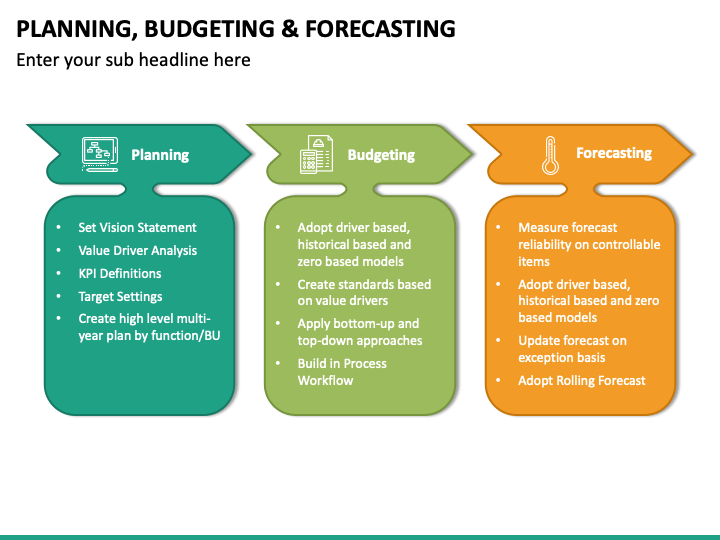

The facilitation of informed decision-making is crucially supported by budgeting and forecasting. The financial status of an organization can be monitored through this process, allowing management to make any required modifications to ensure that objectives are achieved. Frequent evaluation of performance vis-à-vis predetermined objectives enables enterprises to detect deviations, anticipate potential challenges, and expeditiously implement remedial measures. The process of performance monitoring involves utilizing budgets and forecasts as standards to evaluate the actual performance. This practice facilitates the prevention of excessive expenditures, recognition of potential cost-reducing prospects, and optimization of resource allocation efficiency. Through precise prediction of income and costs, enterprises can effectively distribute their resources, guaranteeing that capital is channeled towards endeavors that yield the greatest profits. A precisely outlined budget functions as a financial plan, directing the distribution of resources and guaranteeing that financial objectives are congruent with the company's overarching strategic orientation.Įfficient allocation of resources is a significant advantage of budgeting and forecasting. Through the examination of past records, prevailing market patterns, and benchmarks within the industry, enterprises can discern prospects and obstacles and formulate feasible strategies. The process of establishing financial goals involves the utilization of budgeting and forecasting techniques, which serve as a strategic tool for organizations to chart a course towards achieving their desired financial objectives.

This article delves into the importance of budgeting and forecasting in enabling organizations to make informed decisions and maintain a competitive edge through strategic financial planning. Through the process of creating feasible budgets and precise projections, enterprises can establish financial objectives, distribute resources efficiently, and evaluate their progress in relation to predetermined benchmarks. The practices of budgeting and forecasting are not solely confined to financial matters, but rather are essential elements of strategic planning and decision-making procedures.


 0 kommentar(er)
0 kommentar(er)
